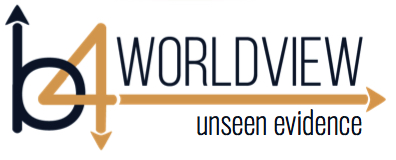
Key Thought for this session:
“Without a compass, the journey is futile.”
So, for example, let’s say someone was struggling with the idea of lying to their employer about the number of hours they worked because they needed the extra help in paying their bills.
Principle One says: “All truth is rational, but everything that is rational is not truth.” In this case, someone could argue that it was rational (meaning reasonable) for the employer to pay a few extra dollars to help with my bills, because after all, he’s rich and won’t really miss the money. And we could pile on other potentially rational arguments such as “I’ve been here a long time and I’m really due a raise anyway” or “if I can’t afford to put gas in my car, then I won’t make it to work and my employer really needs me to be here” or many other such excuses that we are all good at coming up with. You get the idea. This is what Principle One means... just because these excuses may seem rational, it does not mean they will lead us to the truth. When we find ourselves rationalizing, little alarm bells should be going off in our head to tell us that we are trying to convince ourselves that something is right, even though we really know it’s wrong (which, of course, is evident by the fact that we feel a need to keep this lie a secret).
Principle Two says, “Truth does not satisfy one thing only to harm another.” Okay, in light of our example, what kind of harms could there be from lying to your boss about your hours? So... let’s make a list. How about:
• Our conscience, or self-esteem, is damaged, which is evident by our need to keep it secret
• We harm our relationship with our boss by diminishing the trust we might otherwise have in our boss’s good will, which, by the way, lessens our sense of belonging
• We now have some fear that our lie might be discovered, so we worry more and have less joy in our work
• We have less job fulfillment because we now have to face the fact that our accomplishments are built partially on a lie
Again, this list of “harms” can go on and on with many other examples. But the point of principle two is that a “True North” solution would not have to make these kind of long-term harmful compromises. It may be harder to find the best solution, and it sometimes may have apparent short-term negative consequences, but Principle Two suggests that we hold out for a better long-term solution that does not cause long-term harm to our soul.
So, what about Principle 3? Principle 3 says, “Truth depends on the trustworthiness of the originator.” If our core assumption is that truth about lying and stealing is determined by what the originator of truth, then we would trust the originator’s perspective and not what we feel. We have discussed already how limited and flawed our perspectives can be. We may see that lying about our hours gives us some short-term cash flow advantages. But, we may not see the guilt and damage to our self-esteem and damage to our relationship with our boss and damage to our character and the loss of valuable life-lessons, etc.
Finally, let’s look at Principle 4, which says, “Truth is found in the testimonies of the lives of others (others we already trust).” This one might look something like this: Let’s say I was struggling with deciding about lying to my boss about my hours. I open up to one friend who always tells me like it is, and who used to work where I work. With a little advice, he admitted to me that he had had the same temptation, and he lied about his hours, -- and was fired on the spot. Alternately, another person I trust is the assistant manager. He is a really good guy who always seems to have my best interest at heart. The story around work is about a time he was really tempted to lie about his hours, and chose not to. It caused him some difficulty with his cash flow, but unbeknownst to him, his boss at the time knew about his struggles and was impressed with his honesty under fire. As a result, he got a promotion to shift manager because his boss needed someone he could trust with those responsibilities. So, actually, by not lying about his hours, and while it was a little tough at first, he ended up getting a lot more pay in the long run because of the promotion. These are both examples of what it might look like to experience “finding truth in the testimonies of the lives of others.”
Basically, after looking at all four principles together, we can see that our judgment about whether lying (or any other ethical issue) is right or wrong really does not depend on civil law, morality, company policy, or religious practices. It depends on our core assumptions about how the soul is satisfied and what we view as the real source of truth.
OK, we are at the end of several sessions on knowledge, truth, and faith. Like we have done in previous sessions, let’s pause and make sure you have a good understanding of the main points. For each statement, select from the four options which best completes the statement.